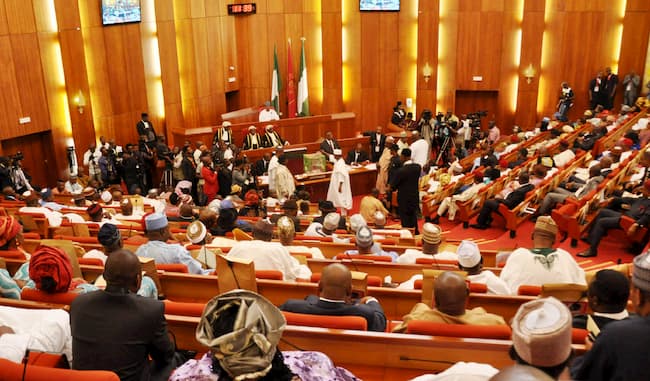The bill was passed on Wednesday after the Senate Committee on Power considered a report. The committee’s chairman, Gabriel Suswam, stated that the bill aims to offer an optimal legal and institutional framework to harness the modest achievements of Nigeria’s privatization phase of the electric power industry.
Suswam stated that if passed, it will reduce aggregate value chain losses in the industry. He also stated that no one or organization generating less than one megawatt is required to obtain a license, and that the new rule will allow states or persons with capacity to do so.
“Since electricity is on the concurrent list in the constitution, the bill has allowed state governments to license people who intend to operate mini-grids within the states,” he said.
According to the congressman, the bill will reenergize the institutional framework for the federal government’s initiative and implementation of the Nigerian Electricity Supply Industry (NESI).
Suswam further stated that the bill’s provisions aimed to support policies and regulatory measures that would facilitate the growth of electricity transmission networks in Nigeria in order to resolve any imbalances in the current transmission infrastructure.
He stated that the law will encourage legislative and regulatory steps to increase the sector’s efficient power production, transmission, and distribution capacities, as well as solve technical limits and aging infrastructure
Ahmad Lawan, president of the senate, midway through consideration of the bill, sought to know the role and operational capacity of banks that had taken over Distribution Companies (DISCOs) indebted to them.
Responding, Suswam explained that the takeover of entities (DISCOs) by banks was duly carried out in collaboration with the Nigerian Electricity Regulatory Commission (NERC) and Bureau of Public Enterprise (BPE).
According to him, there is a transitional process put in place during the take-over of the Abuja Electricity Distribution Company (AEDC) by the United Bank for Africa (UBA) to ensure efficiency in service delivery.
He noted that such a process usually involved invitation of new investors to scale up generation and distribution capacities.
Suswam further disclosed that the federal government had disbursed 100 million dollars to Siemens to kickstart transmission in the distribution end of the power sector.
On his part, Ahmad Babba-Kaita, senator representing Katsina north, said the faulty way in which DISCOs were created resulted in their inability to live up to expectations.
He, therefore, advised the federal government to ensure a transparent process in the selection of companies to takeover power generation and distribution across the country. Aliyu Sabi Abdullahi, deputy chief whip, noted that the aspect of renewable energy in the bill was given prominence amidst the energy mix.
The Electricity Bill, 2022, after a clause-by-clause consideration of the committee’s report by the committee of the whole, was passed by the upper chamber. In his final remarks, Lawan said, “Because of its importance and sensitivity, we would like to see a quick concurrence by the house of representatives.”
“This is because time is of the essence as far as Nigeria is concerned when you talk about electricity and energy supplies in Nigeria.
“So, we will like to see that this bill is fully processed in the national assembly and sent to the executive arm of government for consideration and assent by the president.
“We believe that this piece of legislation can change the fortunes of the electricity industry in Nigeria for the better.”













